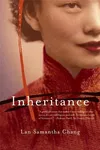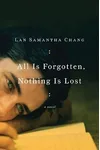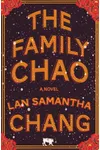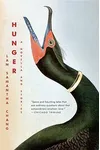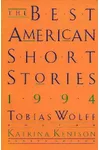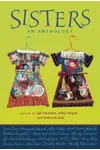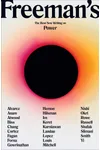Picture a Chinese American storyteller who weaves tales of family, identity, and the immigrant experience with heart and humor—meet Lan Samantha Chang! Born to Chinese immigrants in Wisconsin, Chang has carved a unique space in American literature with her poignant novels and short stories. As the first woman and Asian American to lead the Iowa Writers’ Workshop, she’s not just writing stories—she’s shaping the future of storytelling.
Her work, like the acclaimed The Family Chao, blends cultural duality with universal themes, inviting readers into richly layered worlds. With a style that’s both elegant and emotionally raw, Chang captures the complexities of belonging. Let’s dive into her journey, from a small-town dreamer to a literary trailblazer!
The Making of Lan Samantha Chang
Born in 1965 in Appleton, Wisconsin, Lan Samantha Chang grew up in a waishengren family, her parents having fled China for Taiwan before settling in the U.S. Her childhood was steeped in the push-pull of cultural expectations—her parents urged her toward stable careers like medicine or law, but Chang’s heart was set on stories. At age four, she was already crafting her own books, copying children’s tales with crayon in hand.
Chang’s path wasn’t straightforward. She studied East Asian Studies at Yale, worked briefly in publishing, and earned an MPA from Harvard’s Kennedy School. But writing called her back. She enrolled in the Iowa Writers’ Workshop, earning her MFA in 1993, and later became a Stegner Fellow at Stanford. This leap, against her parents’ wishes, marked the start of her literary ascent.
Lan Samantha Chang’s Unforgettable Stories
Chang’s debut, Hunger (1998), a novella and short story collection, set the tone for her career. Exploring Chinese American and Taiwanese American experiences, it delves into themes of loss, family, and cultural dislocation with gorgeous, enduring prose. The New York Times praised its delicate balance of immigrant struggles, cementing Chang’s reputation.
Her novels—Inheritance (2004), All Is Forgotten, Nothing Is Lost (2010), and The Family Chao (2022)—showcase her versatility. Inheritance, a PEN Open Book Award winner, traces a Chinese family’s saga across generations, while All Is Forgotten examines the bonds of poets in an MFA program. The Family Chao, a comedic retelling of Dostoevsky’s The Brothers Karamazov, follows a dysfunctional Chinese American family running a Wisconsin restaurant. Critics, including Joyce Carol Oates, lauded its ambition, and it earned an Anisfield-Wolf Book Award.
Chang’s style is intimate yet expansive, blending lyrical prose with sharp insights into identity and assimilation. Her stories often center noisy, vibrant families—unlike the “quietly suffering” stereotypes she initially felt pressured to write—reflecting her own lively upbringing. Her work resonates globally, translated into nine languages and featured in The Best American Short Stories.
Why Lan Samantha Chang Matters
As a writer, Chang amplifies Chinese American voices, challenging stereotypes and exploring the long-term effects of immigration. Her narratives bridge cultures, offering readers a window into the joys and tensions of dual identities. Her influence extends beyond the page—as director of the Iowa Writers’ Workshop since 2006, she’s diversified the program, mentoring writers from New Zealand to Bangladesh and quadrupling its endowment to $12.5 million. Her leadership has made the Workshop a global hub for new voices.
Recognized by Oprah Daily as a world-changing writer, Chang’s awards include the Berlin Prize and Guggenheim Fellowship. Her commitment to fostering diverse storytelling ensures her legacy as both a literary artist and a cultural force.
- Born: 1965, Appleton, Wisconsin
- Key Works: Hunger, Inheritance, All Is Forgotten, Nothing Is Lost, The Family Chao
- Awards: Anisfield-Wolf Book Award, PEN Open Book Award, Rona Jaffe Foundation Writers’ Award
- Role: Director, Iowa Writers’ Workshop (first woman and Asian American)
Ready to explore Chang’s vibrant worlds? Snag The Family Chao or Hunger and dive into her masterful blend of heart, humor, and cultural insight!
